Here's another organ jazz record by one of the greats, Jimmy McGriff. Stump Juice is
a little different, being from 1975, and also adding synthesizer played by Ernest
Jones to the group.
On the opening track, "Purple Onion", one of three written by tenor sax player Leo Johnson, who
also plays on the record, the synth is part of a textural layer with Ralph Byrd's electric rhythm guitar
being another significant part. The melody is mostly handled by flute, which is probably Jesse
Morrison. Bob Cranshaw is on bass and, with Lawrence Killian on percussion, creates a killer
groove. It takes McGriff a while to come in but when that Hammond makes its entrance, it really stands
out in this sonic environment. Jimmy Ponder is on lead guitar and takes a nice solo. The next tune is also by Johnson and has a similar swaying, swinging, groovy, funky feel
but is a bit more complex. Duo tenor saxophones handle the melody and once again McGriff
lets the band get everything established before he comes in. This time the synth
is way beyond texture and takes a wild solo. The title track is by Jesse Morrison and uses the synth aggressively to double the bass
part. Then the horns come blasting in, at first just playing a couple of notes in unison
but then doing more complicated lines together. It's a heavy funk blues and when McGriff
joins in—once again he's biding his time—it really takes off. "Cumayon" is the third Leo Johnson piece on this record and has a very different sound
and feel to what's come before. The drummer sounds like he's riding the crash
and all the members of the ensemble are lighter, airier, nimbler, dancing around
some more complex lines and changes. At this point you have to wonder who the drummer actually
is. Lawrence Killian is credited with "percussion" and that's it but there's definitely
a drummer and someone else playing conga (and perhaps other percussion). Next we get a Jimmy McGriff tune. "T.N.T." goes back about ten years or more from 1975
for a classic '60s soul jazz blues with walking bass, a killer groove and giving
everyone room to stretch out on their solos. It's beautiful. That same feel also dominates the next track, another McGriff original called
"Stretch Me Out". This one is jazzier and more uptempo and tough-sounding with
a curve ball or two and a great guitar solo. Interestingly, there's no synthesizer
on these two McGriff tunes. From a different session maybe? The last tune comes courtesy of lead guitarist Jimmy Ponder and it's something of a
marvel. "Pisces" takes an insistent and simple bass line that feels like it leans closer
to rock than to jazz, lets the drums get primitive, and then has the guitar play the melody
with octaves. There's a great sax solo and then McGriff comes in only at about the halfway
point. What a great record. People should be playing these tunes today. If they can!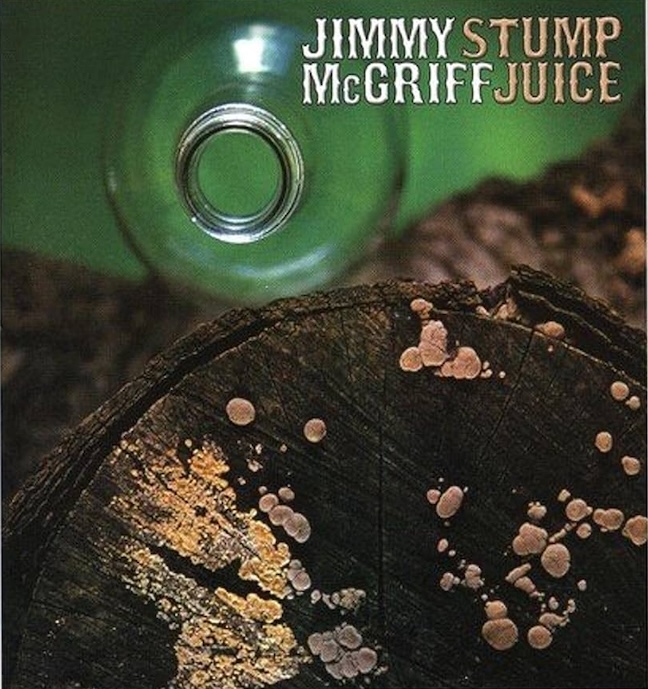
2026 January 28 • Wednesday
Happy birthday to a great pianist! And here's another one, Luiz Eça, with his Luiz Eça e Cordas
record.
It's basically a bossa nova piano trio with strings added and it's gorgeous. The first piece, "A Morte De Um Deus De Sal", is in waltz time and starts
out with a slightly ominous tone but is mostly swinging. Eça plays with an intensity
that keeps it serious, though. "Imagem" has a classic bossa nova groove and the strings are smoothing everything
out but Eça plays with a lot of attack, sometimes surprise attack, so this
isn't really "easy listening" but something much more active and inventive. The string part for "Canção Da Terra" is very dramatic, with minor chords
and ascending and descending lines. It sounds like it could be a soundtrack
piece but I don't think it is. As usual the rhythm section is flawless and Eça
commands your attention. The next piece, "Tristeza De Nós Dois", starts out sounding like a conventional
love song, bossa nova style, but has some surprise accelerations and of course
Eça won't let listeners get complacent. Repeating four-note lines on the piano start off "Velho Pescador" and
while the strings come in soon with an upper register ethereal part, they
drop out for a bit so you can hear the piano trio—or perhaps it's really
a quartet as acoustic guitar is in there too and you can really hear it on
this track. "Canção Do Encontro" starts off fairly sombre, with strings but no piano,
and when Eça comes in his unique phrasing and feel shape the song into
something less familiar but still very beautiful. Next is a song that's almost a truly happy song but Eça starts out "Chegança"
playing with such sharpness and weight that the piano seems to be snarling
behind the smiling strings. Eça does lay back a bit and find a gentler groove for "Primavera",
a pleasant bossa nova piece that's Jobim-like in structure and simplicity. Something about the rhythmic feel of "Consolação" makes it hard to count.
It could be in 4/4 but that doesn't seem quite right. Something like 3-3-2 seems
more accurate. And the way Eça moves around the melody, he could do it in any
meter. It's a very interesting song. The strings announce "Saudade" like it's going to be a fairly straightforward
lounge exotica piece and Luiz Eça is more restrained than usual, though his touch
always has an edge to it and the piece itself takes some unexpected turns. "Quase Um Adeus" starts with solo piano and has a sunlight and shadow dual
personality, a bit like "Darn That Dream". The record ends as it began, in 3/4 time, with the piece "Amando", with Eça
breezily dancing around the camera, very relaxed and inviting. Unexpectedly
there's a solo violin that joins him and they dance together. It's a beautiful record.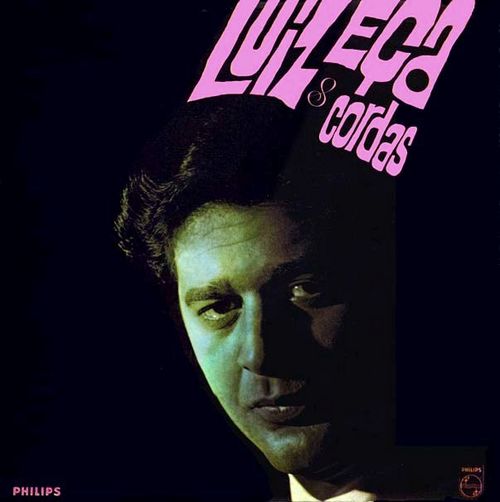
2026 January 26 • Monday
Gerald Fried's music for One Potato, Two Potato
is the 893rd
Soundtrack of the Week.
The main title theme is mostly lighthearted Americana with the orchestra "singing"
the title phrase. At the end it turns serious and pensive, a mood that's continued
in the second cue, "Spotlight/How Many Times", which might remind you of some of
Fried's Star Trek music. The sounds of a bygone age are conjured up in "Love's Old Sweet Song/How
Many Times", with the clarinet taking the lead but also joined by
accordion or something similar, with strings and other instruments coming in
for the second part of the cue. Fried then creates just the right bouncy, playful piece for "Hopscotch".
You can easily imagine that it's for a scene of a child or children playing. The "One Potato, Two Potato/How Many Times" themes then get a bit
of a rearrangement, after which "Outcasts" brings us to a lonely and
sorrowful place created by woodwinds and strings. The same melody
is picked up for the next cue, "We're the Same". "The Marriage" sounds like a serious and complicated situation but the
main theme pops up at the end in a reassuring way. Strings and a low drone announce "Cold Reception", which repeats the "Marriage"
theme and emphasizes the seriousness of it. That motif gets another iteration
in the beginning of "Not for Fools/One Potato, Two Potato" with the
main theme once again making everything lighter at the end. A jaunty and adventurous tone is set for "Shooting Games", with strings
and woodwinds bouncing around with enthusiasm, while "Show-Down Hoe-Down"
continues its feeling of swelling enthusiasm. Dissonance and frantically bowed strings with agitated undercurrents
from the other instruments aptly suggest "Turmoil", after which "Help"
sounds more plaintive than frantic. Thick and heavy string clusters descending a scale and eventually layered
with dissonant and disturbing higher tones make "Attempted Rape" as
disturbing as its title. The following "Frustration" is another one that might remind you of
Star Trek music, though it expands to encompass more colors and textures. "Honor and Protect" has a similar intensity but a different shape, suggesting
suspense and tension, after which the "How Many Times" theme returns, followed
by a sharp and menacing "Along with a Memory" in which the orchestra saws and stabs. The next cue, "The Judge", starts out with some surprisingly comic tones
before becoming serious and featuring solo reed instrument of some kind as well
as solo violin or viola. You can hear the story coming to its resolution in "The Decision/Sorrow" and
"Departure", and the wright and regret of it are signaled vividly in Fried's thick
sonorities. The main theme and a version with vocals comes next and the "One Potato, Two Potato"
song had words to it that I never knew about! This CD has one last track, in which the CD's producer, Stephan Eicke,
speaks with composer Gerald Fried about the score for a few minutes.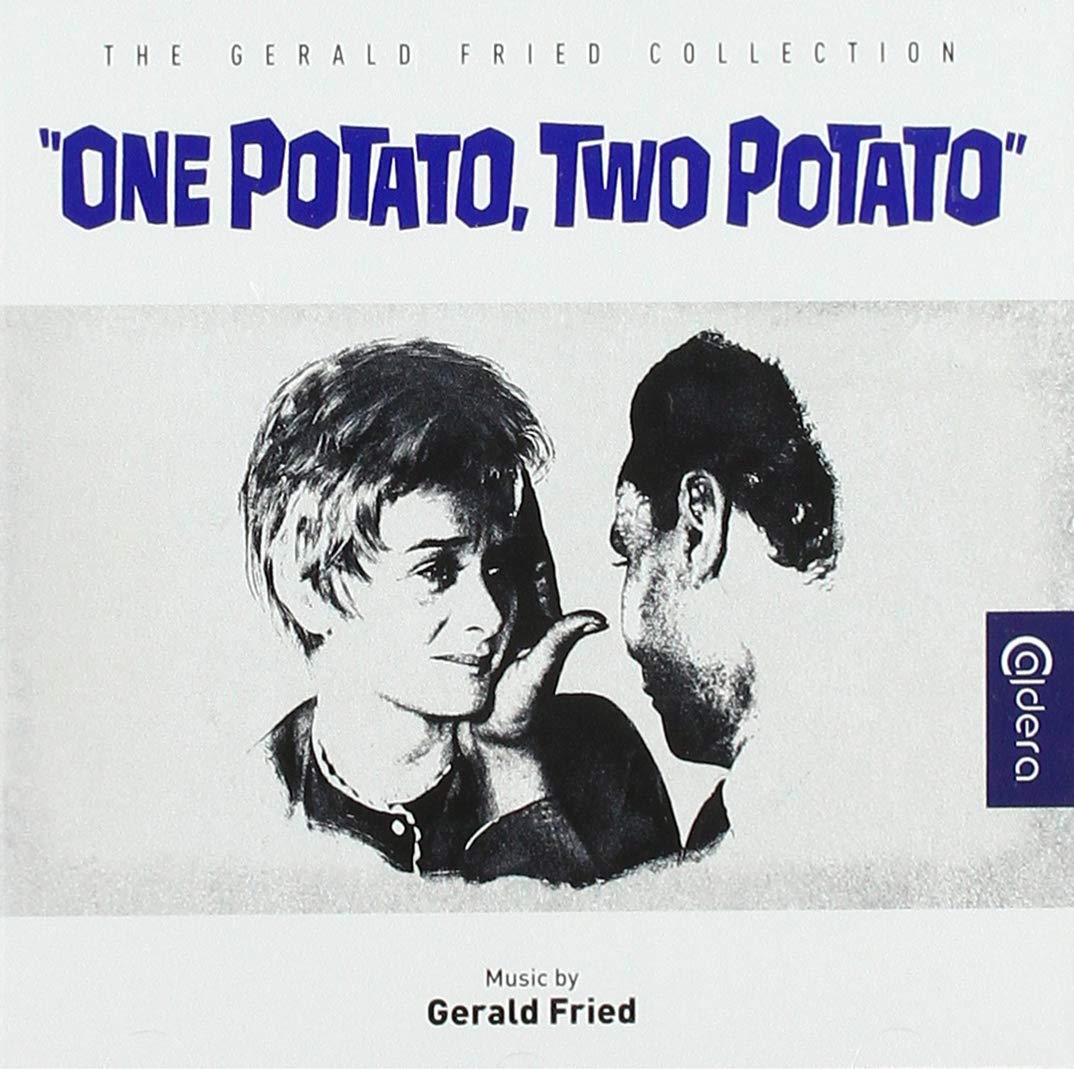
2026 January 23 • Friday
The Lijadu Sisters were identical twin sisters from Nigerian who were
also Fela Kuti's cousins. The Gutbrain collection includes their
third record, Danger, and it's playing right now.
It opens with the title track, which has an irresistible groove, great singing from the sisters,
excellent organ playing and a lot of fuzzed out electric guitar. The next song is a heavier-feeling piece in 3/4, called "Amebo", and also features the fuzz guitar.
The first lyrics are "If the ask me / I'm going to tell the truth". You can really get a sense
of how strong this band is from their ensemble work here. The third song, "Life's Gone Down Low" was apparently sampled by Nas for his song
"Life's Gone Low", and it's easy to understand why. It's a killer, laidback
but tough groove laying a foundation for the sisters to sing about the importance of
love and undestanding. "Cashing In" is the sprightliest and fastest song on the record with the sisters'
harmonies sounding especially heavenly while their lyrics criticize, I think,
selling out and exploitation. The drumming on this one is pretty amazing. "Then it's time for the reggae groove of "Bobby", which is fantastic. The bass and drums
are doing an excellent job here. The last song, "Lord Have Mercy", is a slow and intense piece, using only two chords
for big chunks of it. In addition to singing the words of the title, the sisters also
mournfully evoke dead mothers, starving children, absent fathers, waster lives…. In the background
the guitar wails, the organ lays down thick, sustained blocks of sound. It's a powerful and sobering
work.

2026 January 21 • Wednesday
Look on the back of bassist Chuck Rainey's first solo record, The
Chuck Rainey Coalition, and the first thing you'll notice
is the line "If you've seen 'Midnight Cowboy,' you've heard
Chuck Rainey". From there it goes on to name a lot of other people you've heard
Chuck Rainey playing with: Harry Belafonte, Laura Nyro, Janis Joplin, Quincy Jones,
Lena Horne, The Four Seasons, Shirley Scott, The O'Jays, etc. They could have mentioned Aretha Franklin, too, and probably literally
hundreds more. This first record of his great.
You can see the great people he's working with listed on the front cover there. The mood throughout is pretty funky and groovy but at various speeds and intensities. The first song "Eloise (First Love)" is a bit loungey and features the piano
and strings. Rainey's bass is also prominent and playing some interesting lines
in addition to holding down the low end. The rhythmic feel builds as it goes along. Rainey starts "How Long Will It Last" with a determined, driving bass attack on one
note. When the band comes in it starts swinging in a lighthearted mood and should
make you start tapping your toes. "Genuine John (Colors)" is a slow blues with an amazing feel and subtle percussion
and guitar work. This is followed by a smooth, mid-tempo, grooving number
called "The Rain Song" in which there's some cool baritone guitar as well as
another guitar part that recalls Simon & Garfunkel's "Mrs. Robinson". The bass line
at times has a "Day Tripper" shape to it. A sharper and tighter sound comes next in "Got It Together", which is really a
feature for overdriven guitar and has a slight blaxploitation soundtrack flavor. The next track, "The Lone Stranger", is a bit like a slowed down Curtis Mayfield
groove and also a feature for electric guitar. The bass and drums on this one are
especially good. I didn't think I needed to hear another "Harlem Nocturne" but "Harlem Nocturne/Zenzile"
takes this much played tune to some new pieces, starting with the guitar intro, on which
the guitarist is using some kind of watery wah effect. The string arrangements
are nice and when the meter switches the rhythm section starts walking and
there's excellent trumpet playing. The "Zenzile" part continues in this vein
with some exciting bass embellishments and you can also hear someone exclaim, "Sock it to Me". "It's Gonna Rain" is another blend of soul, blues and funk with some beautifully nasty
electric guitar playing and more impressive but always tasteful bass work from Rainey. All too soon you're hearing the last track and it's the "Theme from Peter Gunn". This is
another one that I didn't think anyone had anything new to say about it but Rainey
takes it faster and lighter, fluttering forward with it and bringing a nimble funk
feel to it. I'm guessing that all bass players secretly or not so secretly want to
play this bass line. And then there's an unexpected break where they play something that sounds
like "The Breeze and I"!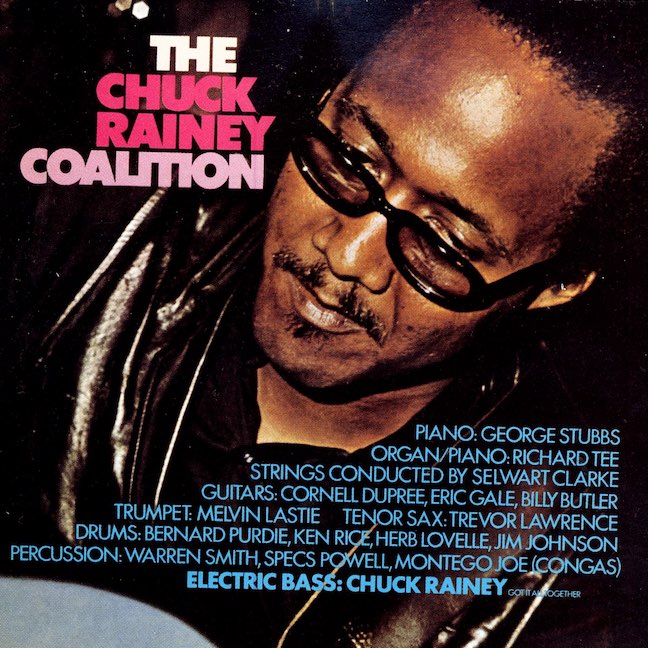
2026 January 19 • Monday
Midnight Cowboy is famous both for John Barry's main
title music and the Nilsson song "Everybody's Talkin'".
Both are really great. It's going to be the 892nd
Soundtrack of the Week.
Quartet Records has put this out on 2 CDs, the first disc being the album
release and the second the original film score. The first track on the album is the aforementioned Nilsson song. You must know it. Everyone knows it.
It's a great song. Then John Barry brings us "Joe Buck Rides Again", not the famous theme
but a gentle and sweet piece of Americana featuring the harmonica. Speaking
of harmonica, which is a huge part of the score in general and the famous
theme in particular, the score and album have different harmonica players. Jazz great Toots Thielemans played the harmonica parts for the
score but Tommy Reilly handled the instrument for the album recording. The third album track is a stereotypical "hippy" flower people sort of
song by The Groop. It's called "A Famous Myth" and has nice vocal harmonies. John Barry doesn't always get the credit he deserves for being a master
of mood. "Fun City" is a masterpiece of atmosphere with astonishingly
dark and heavy bass playing, magically understated drumming, deft and
charming piano solos and classic Barry writing for strings. Then there are a couple of really good songs. Lesley Miller's "He Quit Me"
is a deep, slowish, soul-funk-blues with powerful vocals. "Jungle Gym at
the Zoo" by Elephant's Memory is a pounding bit of acidy rock with
great lyrics about being an animal. And it's at this point that solo harmonica introduces the main
title theme, one of Barry's best and most famous. In addition to its
plaintive and sensitive qualities, the arrangement is fantastic,
with a subtle guitar part adding an almost subliminal rhythmic undercurrent
that connects it to the Nilsson song, a killer rhythm section and
again strings with Barry's signature sound. Elephant's Memory returns with "Old Man Willow", a very different
sort of song with organ and watery, swirling guitar, solo female
vocalist, psych-baroque arrangement, waltz time… It's really good,
especially the chorus. John Barry's "Florida Fantasy" starts out with gently tapping
drums and then cheerful woodwinds, harpsichord and a woozy sort
of electronic keyboard join in. When the whole combo gets together
it breaks into a sunny, tropical groove. "Tears and Joys" by The Groop is another very late-'60s
commercial hippy/psych song. It's good but not as impressive
as the Elephant's Memory songs. John Barry's more haunting and pensive side comes out in "Science Fiction",
which also foreshadows some of his Bond music for You Only Live Twice
and Moonraker. It's beautiful. Then what? "Everybody's Talkin'" again, several alternate takes,
a single version of the main theme. The film score on disc 2 has multiple versions of the Nilsson song
as well as some amazing additional Barry cues. The harmonica finds itself in a ghostly dreamscape in
"Daydreams and Nightmares" and "Realization" is Barry's
amazing take on acid psych rock. I wonder how many people would guess the composer in
a blindfold test. The main theme is given a heavier, extra-guitar interpretation
in "Midday and Midnight Cowboy" whereas "You're the Only One, Joe"
might be the most avantgarde thing Barry ever did, sounding
like some kind of electronic industrial band doing something for a David
Lynch movie. Old timey guitar and piano are used as source music and are a bit like
The Grateful Dead's "A Box of Rain". It's a very short piece by
Toxey French called "Sunshine and Coconut Milk". "Orange Juice on Ice" is another bit of source music,
a chipper song that sounds like a commercial for Florida orange juice. The main theme gets another more intense work out in
"Night Life" and a very similar one in "The Cemetery". But then Elephant's Memory is back with the nearly nine-minute
long "The Gates of Hell", an epic extension of their two songs from
the album, lots of jamming.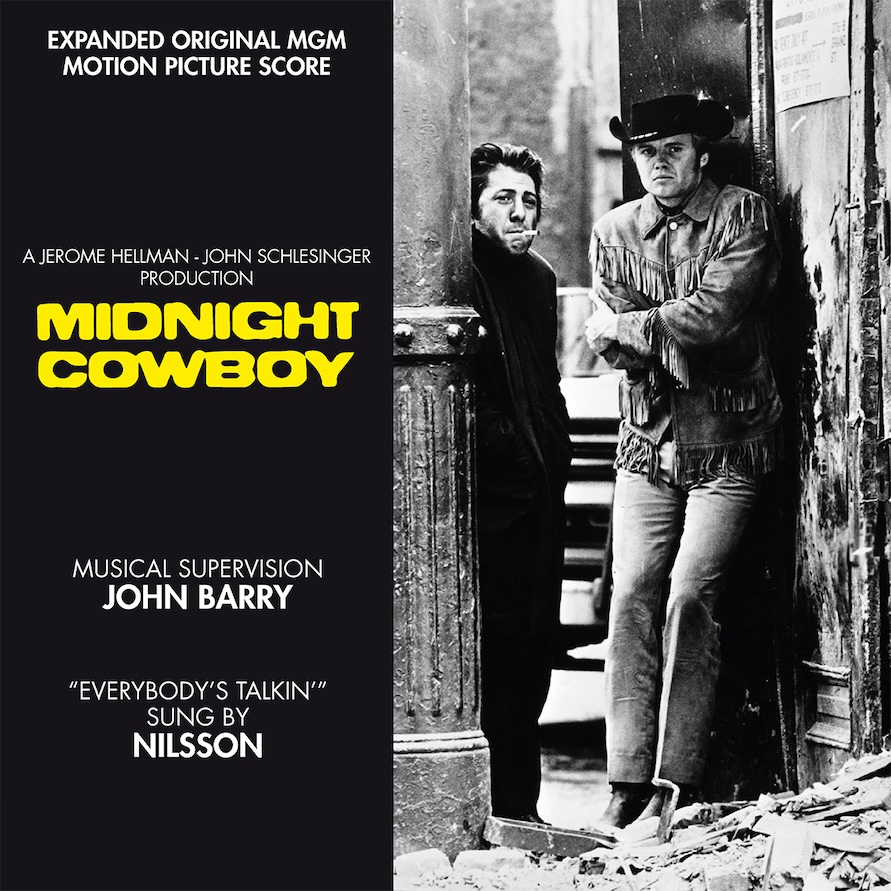
2026 January 16 • Friday
Hammond organ works just as well in rock as it does in jazz and it
plays nicely with fuzz guitar in this not so well known self-titled
record from 1968, Ivory.
Vocalisthenics Christine Christman sounds a bit like Grace Slick and the record
is certainly in the Jefferson Airplane neighborhood, not much of a surprise
since it was produced by Airplane's producer, Al Schmitt. The opening track, "Silver Rains", is a proud psych-rock anthem
while the next song, "Free and Easy", keeps the fuzz guitar but directs
the band to a slightly jazzier feel. Acoustic guitar and piano bring more of a sunshine hippy mood to "Losin' Hold",
which has nice vocal harmonies and love-song lyrics. This sentimental mood is sustained in "Laugh", which has more intense drumming
but still a light and crystalline sound before we get back to the heavy,
fuzzed out psych of "A Thought". "I, of the Garden" re-introduces the jazzy feel and merges it with some trippy
lyrics and changes in tone that should help your ears stay alert. The remaining tracks—"All in My Mind", "A Light", "Last Laugh" and "Grey November"—are
all really good but sound pretty similar to what's come before.

2026 January 14 • Wednesday
You'll often hear some kind of Hammond organ music coming out of the
speakers at Gutbrain Headquarters. It's always exciting to add a new
organ record to the collection and Lou Bennett's Amen is an excellent one.
Not only is this a great organ jazz album, with Bennett on Hammond, but it also
features a great guitarist, Jimmy Gourley, who was new to me. The fantastic Kenny Clarke is on drums and Jean-Marie Ingrand on bass. The combo starts things off with a swinging take on Horace Silver's "Sister Sadie"
and continues with a lighthearted and grooving interpretation of Miles Davis's
"So What". The tempo picks up a bit for Junior Mance's "Jubilation" and then gets speedier
for Bennett's own "Brother Daniel", which has a hint of menace in its
speedy lines and bluesy changes. "Green Dolphin Street" starts out like church music and retains a serious mood
throughout while the title track is by Donald Byrd and is a rocking sort of gospel-tinged
number. The CD has several bonus tracks, including stalwarts such as "Stella by Starlight", "Cheek
to Cheek", "I'm Getting Sentimental Over You" and "Night and Day" as well as an alternate
take of "Brother Daniel" and a haunting piano piece, "Reverie".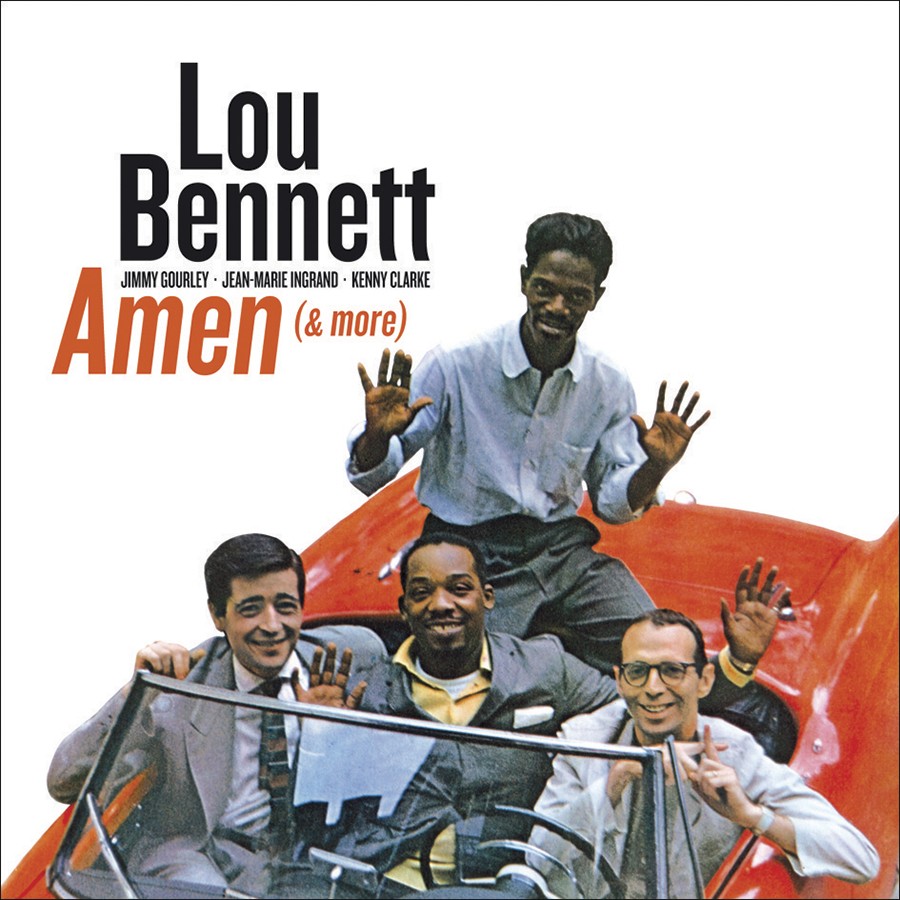
2026 January 12 • Monday
Maurice Jarre's theme from the movie Jacob's Ladder
has found its way into the live performances and most recent
recording of my band Elite
Travelers. So let's make that score the 891st
Soundtrack of the Week.
The main theme is a melancholy and atmospheric piano feature in 6/4 that has a hypnotic quality.
Jarre went for sadness instead of horror in his approach and the movie itself
is a gloomy sort of nightmare, suffused with sorrow. This release contains the album presentation as well as the original film soundtrack.
"High Fever" has wooden flute and pizzicato strings combining with percussion and
sustained chords that shold please Angelo Badalamenti fans. It's a long piece that
builds nicely. "Descent to Inferno" starts with some sounds of terror and dread, with pulsating
bass part, ominous low drones and metallic clanging before returning to the lush
atmosphere of the previous track. The main theme is then reprised in the lovely "Sarah", and then extended
with impressive tenderness and lyricism, alternating with some more
dread-inducing sonorities. A lot more of this ominous atmosphere starts off "The Ladder", which does
also include some lighter, more uplifting writing, braided together
with dark, cloudy tones. This might not be one of Jarre's more dramatic
score but it's absolutely one of his most beautiful and haunting. The album release concludes with Al Jolson singing "Sonny Boy". The film score has mostly the same music but presented in separate, shorter
cues instead of miniature suites, and with more repetition. All of it is
great to listen to.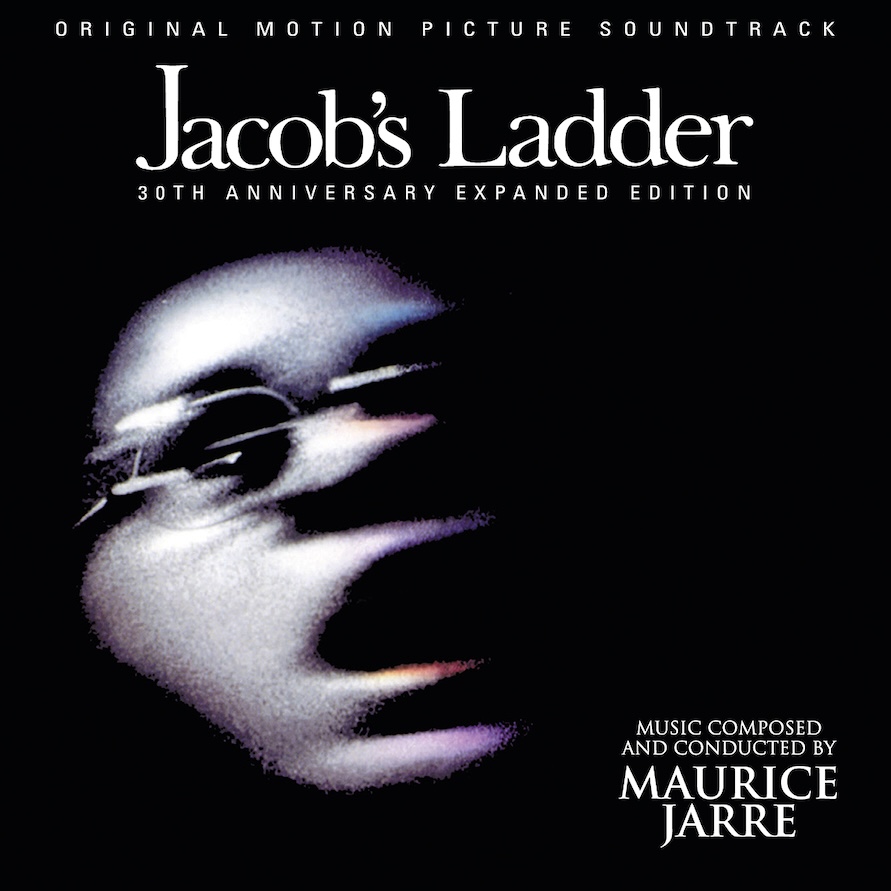
2026 January 09 • Friday
Stockholm is one of the best record-store cities I've ever been to. And if I had
to select a favorite shop, as much as I love
Pet Sounds
and Djungel & Jazz,
my pick would have to be Record Mania.
Since we don't make it over to Stockholm that often, I decided not to hold myself
back at Record Mania and to buy just about any record that had guitarist Rune
Gustafsson on it. (There was actually one such record that I decided not to buy because, well, it looked
like it was probably not very good. The owner of the shop gave it to me for free.) This turned out to be one of those trips where I bought so many
records that the bag I was carrying in them fell apart. Luckily
we made it almost the whole way before that happened. But months and months later I'm still working my way through these albums.
And some of them are shockingly good. Right now the most exciting one is In Pleno,
by jazz pianist Jan Johansson.
This is a record that can hold its own against any number of classic US jazz records
from the '50s or '60s. Johansson might remind you of Bill Evans on one tune
or Horace Silver on another or Hank Jones or whoever. You can't really pin him
down because he has his own voice. The material ranges from West Coast-style jazz to some more avantgarde and interesting
tracks, as well as an exciting take on the traditional "Joshua Fit de Battle of
Jericho".
The band is also more than impeccable but brilliant. The musicianship
and ensemble feel are extraordinary. Rune Gustaffson is on here, of course,
drwaing favorable comparisons to Jim Hall and Kenny Burrell. The other contributors
are Georg Riedel on bass, Egil Johansen on drums and Rupert Clemendore on percussion. I hadn't been caring much about jazz recently but In Pleno reignited that
particular flame for me. I left the record on the turntable and just kept listening to it.
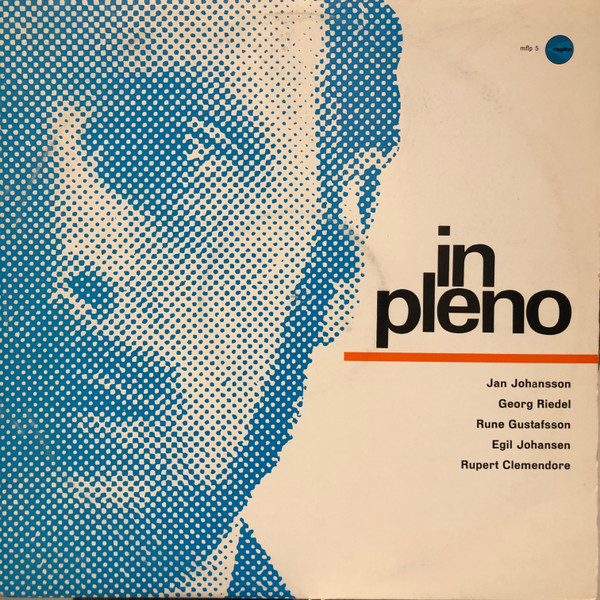
2026 January 07 • Wednesday
Julianna Riolino's All Blue was an instant favorite of mine when it came out a few
years ago and listening to it dozens of time didn't diminish my enjoyment of it at all. So it's exciting to have her follow-up record now. Echo
in the Dust is another exciting, meticulously crafted, sometimes rocking, sometimes
dreamy album.
My favortie song from All Blue ended up being "Hark" but it's too early to
say what the favorite track from Echo in the Dust is going to be. Likely candidates include "On a Bluebird's Wing", which would be great to listen to while
driving or, if you're me, biking. "Like a Rembrandt", with its powerful and assured vocals and distorted guitar riff that recalls
Link Wray's cover of "Please Please Me", is a perfect opener that eases the listener
back into Riolino's musical world. 1950s rock and pop traits are cleverly reassembled for "Seed", which also surprises
with a shift in both meter and intensity without abandoning that previous era. Art rock that's like a considerably more domesticated Tropical Fuck Storm gets a nod
in "I Wonder" while "Let Me Dream" might be the best of the slower and more hypnotic songs. Of course you should just
buy
it and draw your own conclusions!
2026 January 05 • Monday
Let's start 2026 with Charles Bronson and Lee Marvin. The 890th
Soundtrack of the Week is Jerrold Immel's
music for their movie Death Hunt.
Angie Dickinson and Carl Weathers are in it too. I bet it's pretty good! The score is solid. "Main Title/Dog Fight" starts off with some swirling
strings that would suit a horror movie, soon balanced by a heroic theme
for brass and martial snare drum. Pastoral Americana comes next in "Man's Best Friend/The Cabin", which features
harmonica and flute. The main title music is reprised and some other suspense/horror moods
added for "Millen's Posse/Shoot Low", with the horror feel continued in
"Thawing Out/Dynamite/He's Gone". The first half of "Would It Make Any Difference/In Pursuit" returns to the
harmonica-led Americana territory before veering off again into tense action/terror
music. A pensive sound that also suggests the wide-open spaces of the western
is the main ingredient of "Millen and Johnson Spot Each Other" and then it's
back to unsettling, sharp, dangerous sonorities for "Hazel and Alvin Fight/Running
with the Caribou". More aggravated, often dissonant sustained tones, jagged staccato phrases
and ominour low swells keep everything on edge for "Aerial Pursuit"
and then things settle down a bit for the tense but lower key "Another Hard
Choice/Across the Ice Peaks" and "One Last Chance/Now You're in Charge". The "End Credits from Death Hunt" reprise the hopeful Americana theme, and then there are
four pieces of source music, three of them fiddle and piano music with the fourth,
a rendition of "My Darling Clementine" played on accordion or similar instrument. Fans of John Williams and Jerry Goldsmith are likely to enjoy this one.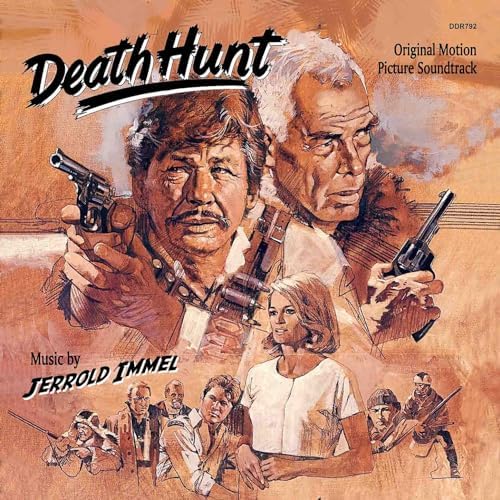
2026 January 02 • Friday
One of the most exciting record labels around right now is
Riding Easy.
My favorite releases from them tend to be these rescues of long lost,
sometimes never before released recordings of heavy psych/prog/rock
music from the early 1970s though they also release recordings by
current bands. For an example of something brought back from the distant past,
check out thie Granicus LP!
It starts strong with the aggressive "You're in America" and "Bad Talk",
both loud, fast and hard-hitting songs in a Black Sabbath/Led Zeppelin. Then strings come in for a mellow instrumental called "Twilight"—think the intro
to "Collage" by James Gang—followed by a monstrous 11-minute song called
"Prayer", which is also very pretty mellow several minutes before the fuzz box
gets stomped and the drums come crashing in. They were originally from Cleveland but moved to New York, where they recorded
this album and the song "Cleveland, Ohio" has a repeated line "I'm getting
out of Cleveland, Ohio". "Nightmare" starts as a trippy, spacey, laidback number before picking
up speed, followed by the headbanging, Zeppy "When You're Movin'". The last song, "Paradise", is another long one, at a little over seven minutes,
and is an intense, mostly up-tempo rocker that has trace elements of Hendrix
as well as the stirrings of hard core and metal. Seriously, this record is great.
Check it out!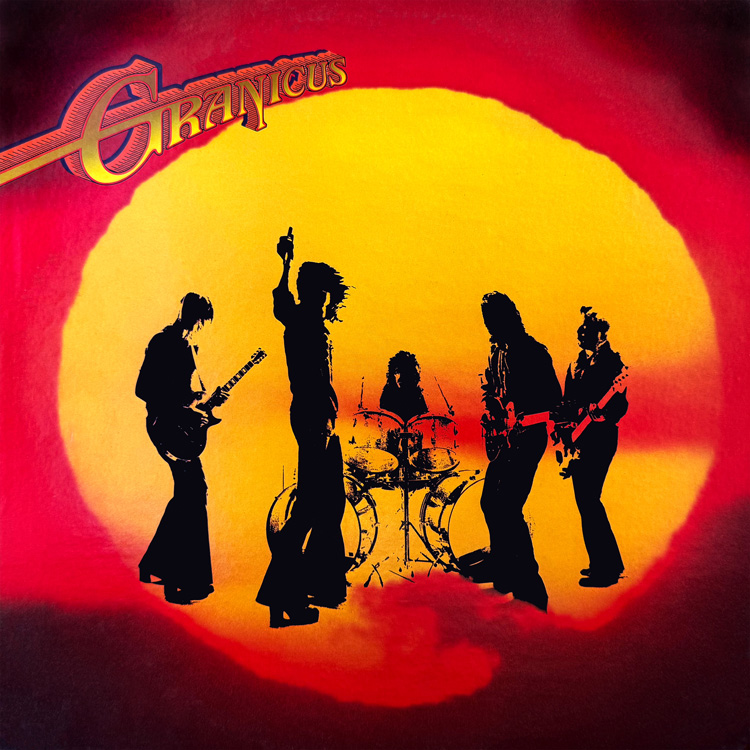


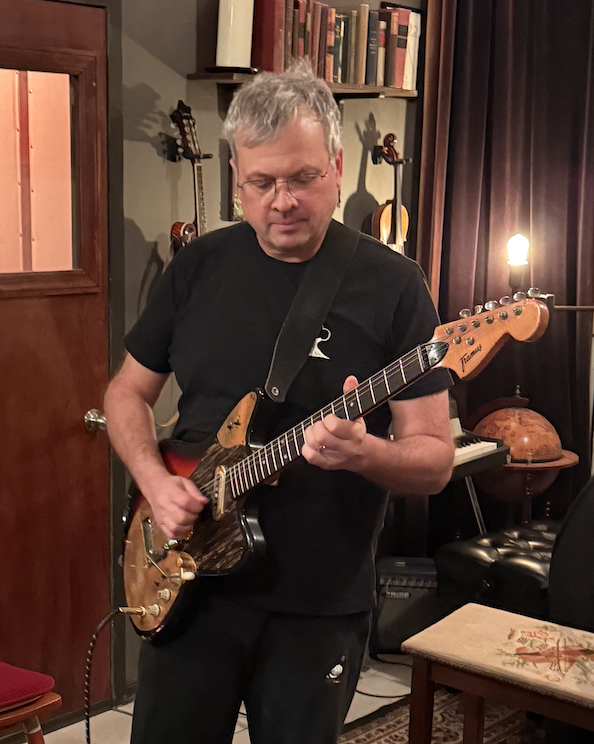
 APPEARANCES
APPEARANCES